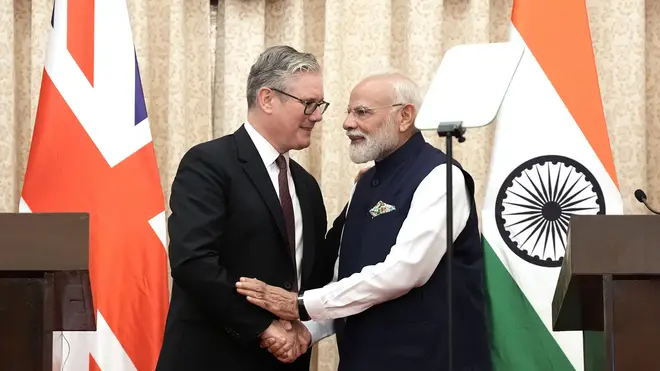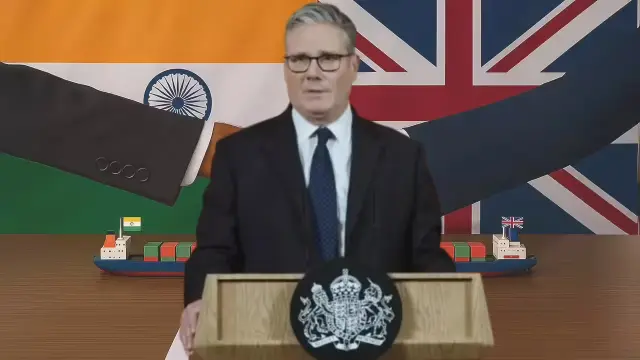UK-India £350M Missile Deal Strengthens Defence Ties
The UK has inked a £350 million ($468 million) contract to supply India with lightweight multirole missiles made in Northern Ireland. The deal, struck during PM Starmer’s visit to Mumbai, is part of a deeper UK-India defence partnership and includes naval engine collaboration.
Britain has finalized a £350 million (≈ $468 million) defence contract to supply the Indian Army with lightweight multirole missiles, manufactured by Thales in Northern Ireland. The announcement was made on October 9, 2025, during Prime Minister Keir Starmer’s official visit to Mumbai, where he met Indian Prime Minister Narendra Modi. Reuters+2Dawn+2
The missiles are part of the UK-India defense industrial collaboration aimed at deepening strategic ties under the backdrop of recently signed trade deals and growing security cooperation. Reuters+2Indian Defence News+2 The contract will secure around 700 jobs at the Belfast Thales factory, which currently produces similar systems for Ukraine. Reuters+1
As part of the broader agreement, the UK and India also signed a related deal worth £250 million for developing electric-powered ship engines for naval ships — a move seen as enhancing naval technology cooperation under this budding defence partnership. Reuters+2Indian Defence News+2
Strategic Implications
This missile deal serves as a stepping stone toward an expanded, more complex weapons partnership between the two nations, which is currently under negotiation. Reuters+1 Analysts note that this reflects a dual strategy: enhancing the UK's defense export economy while supporting India's increasing focus on defence modernization and self-reliance. Indian Defence News+2The Independent+2
From the UK’s perspective, this aligns with Prime Minister Starmer’s pledges to grow defence industries, meet NATO spending commitments, and bolster export revenues. It also underscores the UK’s ambition to position itself as a defence partner to growing Indo-Pacific powers. Reuters+1
Meanwhile, India gains access to sophisticated air-defence capabilities for platforms needing lightweight missile systems—effective against aerial and surface threats including small boats, drones, and light armoured vehicles. The Times of India+1
Potential Challenges & Observations
Integration and maintenance of the missile system pose logistical challenges, especially given varied operational environments in India.
Balancing this foreign procurement with India’s “Make in India” / defence self-reliance strategy will require calibrated technology transfers and co-production.
The broader weapons partnership under negotiation will likely involve issues around export control, intellectual property, and political oversight.
The deal is widely viewed by observers as a hallmark of the UK-India strategic pivot, reinforcing mutual geopolitical interests, defence cooperation, and industrial growth. With rising global instability and shifting alliances, such bilateral arms/technology deals are becoming increasingly consequential.
















